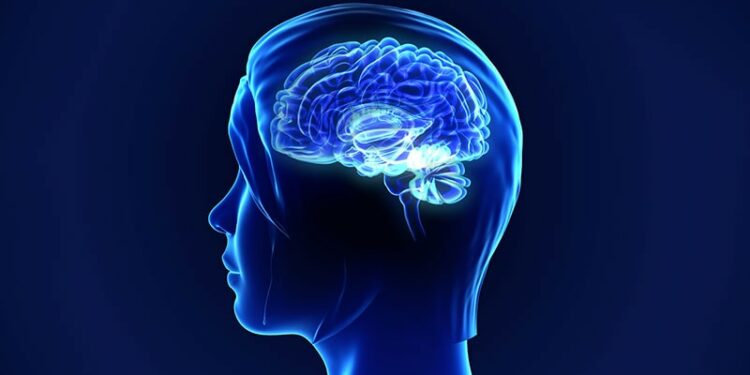[ad_1]
Decades of research have implicated hippocampal dysfunction in psychosis, but it’s been unclear whether this dysfunction was causative or compensatory. A new study suggests a causal role for hippocampal circuit dysfunction in psychosis, particularly cases that resemble schizophrenia.
“Our study provides the first direct evidence that lesions causing psychosis map to a common brain circuit centered on the hippocampus, particularly the posterior subiculum,” lead author Andrew Pines, MD, MA, with the Department of Psychiatry, Brigham and Women’s Hospital, Harvard Medical School, Boston, told Medscape Medical News.
“These results are really exciting because they lay the foundation for targeted neuromodulation strategies,” Pines said.
The study was published online on February 12 in JAMA Psychiatry.
Promising Target for TMS
Using a case-control design, the study team mapped functional connections of published cases of brain lesions associated with psychosis and compared them with control lesions unassociated with psychosis.
Cases were included if the lesion was radiologically determined to be acute and symptoms developed within 1 year, the patient had negative imaging within 1 year before psychosis onset, or resolution of the lesion coincided with symptom resolution.
They identified a total of 153 cases (54% women; mean age, 50 years) in which lesions were determined to cause secondary psychosis — including 83 with visual hallucinations, 81 with auditory hallucinations, 67 with delusions, 25 with thought disorder, and 13 with negative symptoms.
About one quarter (27%) of the 153 cases were described as schizophrenia or schizophrenia-like.
Lesions causing secondary psychosis mapped to a common functional brain circuit with a peak in the posterior subiculum of the hippocampus (84% functional overlap). At a lower statistical threshold (> 75% overlap), the circuit also included the ventral tegmental area, retrosplenial cortex, lobule IX, and dentate nucleus of the cerebellum, and the mediodorsal and midline nuclei of the thalamus.
In an independent cohort of 181 patients with penetrating head trauma, lesions associated with psychotic symptoms demonstrated significantly similar connectivity profiles to the lesion-derived psychosis circuit.
“This functional circuit was consistent across different psychotic symptoms, suggesting a shared neural substrate for psychosis; a similar circuit was derived when excluding lesions directly intersecting the hippocampus, indicating a circuit-level effect,” the investigators wrote.
They also identified a target in the rostromedial prefrontal cortex that is functionally connected to the psychosis circuit and accessible with transcranial magnetic stimulation (TMS).
“Incidentally, this target is in proximity to the FDA [US Food and Drug Administration]-cleared TMS site for nicotine dependence,” Pines told Medscape Medical News.
“The next scientific step is to test whether neuromodulation of this circuit can ameliorate psychotic symptoms in patients with primary schizophrenia,” Pines said.
“We plan to use TMS to target this circuit and assess whether modulating this lesion-derived circuit improves symptoms in primary schizophrenia and whether functional MRI before and after TMS can provide a biomarker of circuit engagement and symptom response,” he added.
Novel and Compelling Evidence
Writing in a linked editorial, Stephan Heckers, MD, with the Department of Psychiatry, Vanderbilt University Medical Center, Nashville, Tennessee, said these observations “fit well into the extant literature on brain changes in schizophrenia. While the first evidence for hippocampal abnormalities in schizophrenia did not appear until 1985, it is now one of the most robust findings in both postmortem and imaging studies.”
The new study “contributes novel and compelling evidence for the direction of causality: perturbations of a hippocampal circuit are not merely epiphenomenal or compensatory, but lead, downstream, to psychosis,” Heckers noted.
“But we need to pause here,” Heckers cautioned. “When and how to intervene in a hippocampal circuit for the treatment of persons with psychosis is far from clear.”
The study had no commercial funding. Pines and Heckers had no relevant disclosures.
[ad_2]
Source link : https://www.medscape.com/viewarticle/lesions-common-brain-circuit-cause-psychosis-2025a10003vc?src=rss
Author :
Publish date : 2025-02-14 11:02:21
Copyright for syndicated content belongs to the linked Source.














